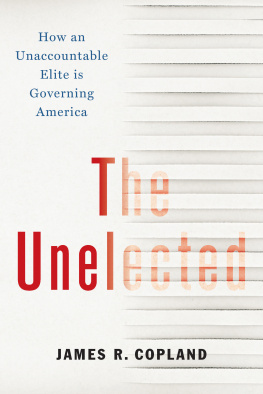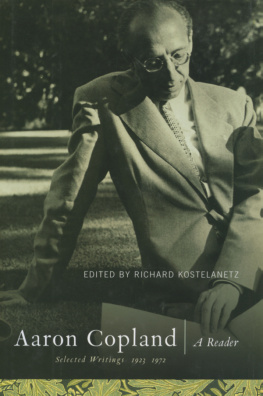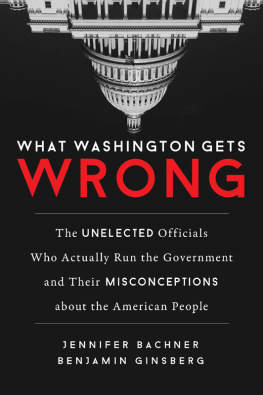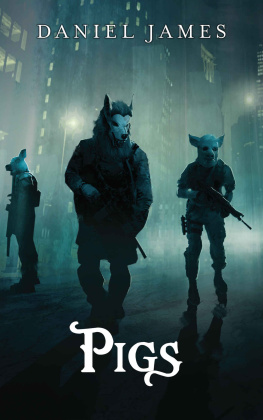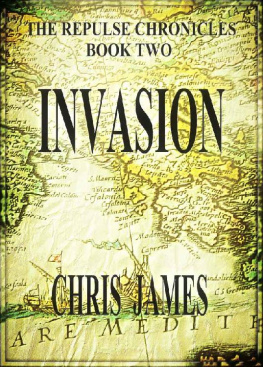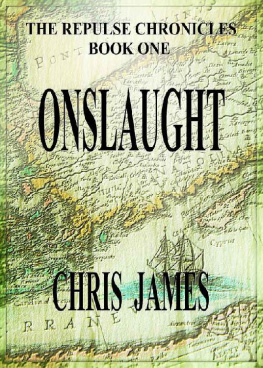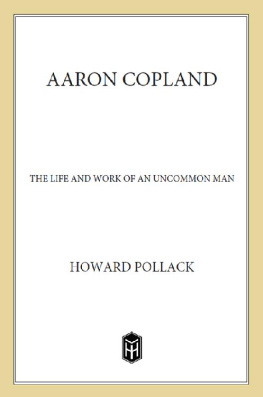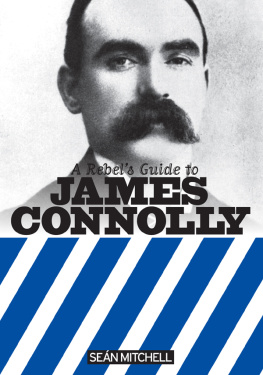James R. Copland - The Unelected
Here you can read online James R. Copland - The Unelected full text of the book (entire story) in english for free. Download pdf and epub, get meaning, cover and reviews about this ebook. year: 2020, publisher: Encounter Books, genre: Politics. Description of the work, (preface) as well as reviews are available. Best literature library LitArk.com created for fans of good reading and offers a wide selection of genres:
Romance novel
Science fiction
Adventure
Detective
Science
History
Home and family
Prose
Art
Politics
Computer
Non-fiction
Religion
Business
Children
Humor
Choose a favorite category and find really read worthwhile books. Enjoy immersion in the world of imagination, feel the emotions of the characters or learn something new for yourself, make an fascinating discovery.
- Book:The Unelected
- Author:
- Publisher:Encounter Books
- Genre:
- Year:2020
- Rating:4 / 5
- Favourites:Add to favourites
- Your mark:
- 80
- 1
- 2
- 3
- 4
- 5
The Unelected: summary, description and annotation
We offer to read an annotation, description, summary or preface (depends on what the author of the book "The Unelected" wrote himself). If you haven't found the necessary information about the book — write in the comments, we will try to find it.
The Unelected — read online for free the complete book (whole text) full work
Below is the text of the book, divided by pages. System saving the place of the last page read, allows you to conveniently read the book "The Unelected" online for free, without having to search again every time where you left off. Put a bookmark, and you can go to the page where you finished reading at any time.
Font size:
Interval:
Bookmark:


2020 by James R. Copland
All rights reserved. No part of this publication may be reproduced, stored in a retrieval system, or transmitted, in any form or by any means, electronic, mechanical, photocopying, recording, or otherwise, without the prior written permission of Encounter Books, 900 Broadway, Suite 601, New York, New York, 10003.
First American edition published in 2020 by Encounter Books, an activity of Encounter for Culture and Education, Inc., a nonprofit, tax exempt corporation.
Encounter Books website address: www.encounterbooks.com
Manufactured in the United States and printed on acid-free paper. The paper used in this publication meets the minimum requirements of ANSI/NISO Z39.481992 (R 1997) (Permanence of Paper).
FIRST AMERICAN EDITION
LIBRARY OF CONGRESS CATALOGING-IN-PUBLICATION DATA
Names: Copland, James R., author.
Title: The Unelected : How an Unaccountable Elite Is Governing America By James R. Copland.
Other titles: How an Unaccountable Elite Is Governing America
Description: First American edition. | New York : Encounter Books, 2020.
Identifiers: LCCN 2020015909 (print) | LCCN 2020015910 (ebook) ISBN 9781641771207 (board) | ISBN 9781641771214 (epub)
Subjects: LCSH: LawUnited States. | United StatesPolitics and government21st century.
Classification: LCC KF385 .C7 2020 (print) | LCC KF385 (ebook) DDC 320.973dc23
LC record available at https://lccn.loc.gov/2020015909
LC ebook record available at https://lccn.loc.gov/2020015910
Interior design and typesetting by Bruce Leckie
In memory of Jim Dupree
and
in honor of Ben and Liz.
Contents
INTRODUCTION
As this book goes to press, America is facing a viral epidemic at least as large as any weve seen in a hundred years. The president has declared a national emergency and assumed broad authoritiesinvoking the Defense Production Act, typically reserved for wartime. Congress moved to action quicklyor at least quickly for Congresspassing emergency legislation unprecedented in size, spending more than $2 trillion in an effort to keep businesses solvent, citizens fed, and state governments functioning. Even the third branch of government, the judiciary, has been affected: the Supreme Court, for the first time in its history, is hearing its cases by telephone, simultaneously broadcasting them to the public. More than 100,000 Americans have died. And more Americans have lost their jobs more quickly than ever before; the current economic contraction far surpasses anything seen since the Great Depression.
Aside from the grim details of the public-health crisis, the questions about the science of a novel virus, and the fallout from a sharp drop in economic activity, much of the public attention has focused on our elected government actors. Thats understandable. The president and many governors and local officials regularly hold televised conferences, sometimes daily. Congressional sessions are broadcast, too. We can see each bill, each executive order, in real time. Were unusually aware of these bills and executive orders, both because theyre so consequential to our lives and because so many of us are at homeeither working remotely or unemployed.
Weve never been more connected to Washingtona place quite distant to the average American in the early years of the American republic. We have round-the-clock news on television and instant news on the Internet, giving us access to more information, more immediately, than ever before. Our plethora of information sources and our increased division have led many Americans to second-guess the elected officials on either side of the partisan political aisle.
To be sure, the actions of many elected officials warrant criticism (to put it mildly). That may be disheartening, but its nothing new. And the actions of the president and Congress alike have in fact been consequentialemergency declarations and $2 trillion appropriations are quite extraordinary. But too much focus on the elected officials misses a lot of the picture. Behind the president and the Congress lie a host of unelected actors with government rolesand these actors, as much as the ones we vote on, are responsible for a great deal of the way our government influences our everyday lives, not to mention the response to the current viral pandemic.
Some of these actors, usually unseen, have emerged into public awareness in the crisissuch as Dr. Anthony Fauci, the director of the National Institute of Allergy and Infectious Diseases since 1984. Dr. Fauci has regularly appeared on national television alongside the president and other government officials in daily news conferences, winning the admiration of many (and the animosity of others who dont like his message). But Fauci is only one longtime player in a vast federal bureaucracywhich itself is but one piece of the unelected shadow government influencing our lives.
Consider the two federal agencies at the forefront of the American response to the coronavirus epidemic: the Centers for Disease Control and Prevention (CDC) and the Food and Drug Administration (FDA). After Chinese authorities uploaded the SARS-CoV-2 genome onto the Internet on January 10, scientists at the CDC developed a new testing protocol relatively quicklyby January 21, the same date that international scientists developed a different test, which was soon disseminated widely by the World Health Organization. But after that seemingly auspicious start, the unelected actors stumbled. Cumbersome regulations and the instinct of agency bureaucrats to prioritize perfection thwarted the creation of an efficient testing regime.
The problem wasnt with the laws enacted by Congress. The legislature had granted broad powers to the FDAthe federal governments arbiter of safety and efficacy in the development of drugs and medical devicesto permit the use of such products, whether previously approved or not, in a declared national emergency. The problem was that the officials staffing the federal bureaucracy did not exercise this authority with any haste.
On February 4, the FDA approved an emergency authorization for the CDCand only the CDCto conduct testing in the United States. The agency did not allow any private companiesor even state or local governmentsto handle tests for the new virus until March 12, when it granted its first non-CDC testing authorization to the Roche company. In the interim, companies seeking emergency-use authorization were stymied by a maze of regulationscreated by the agencies, not by Congress, but in any event not well suited to the urgency of the moment. Until the FDA eventually waived its own rule, companies were even required to mail in CD-ROMs for agency review, rather than submit online requests.
The federal agencies decision to go it alone and reject private-sector involvement proved fatal to any hopes of an early, widespread American testing effort. The CDC test initially was beset by failures, and its rollout inhibited by critical shortages in the subcomponents necessary for the agencys test design. The same day that the CDC announced its testing protocol, January 21, saw the first documented American case of the novel coronavirus. South Korea also documented its first case that day. But by March 17, the United States had administered only 125 tests per 1 million people, while South Korea had administered more than 5,000 tests per 1 million over the same time span. By aggressive testing, South Korea was able to trace viral spread and substantially contain it. Without such a testing regime, the United States was left with little choice but the draconian measures that shut down much of American social and economic life.
Next pageFont size:
Interval:
Bookmark:
Similar books «The Unelected»
Look at similar books to The Unelected. We have selected literature similar in name and meaning in the hope of providing readers with more options to find new, interesting, not yet read works.
Discussion, reviews of the book The Unelected and just readers' own opinions. Leave your comments, write what you think about the work, its meaning or the main characters. Specify what exactly you liked and what you didn't like, and why you think so.

